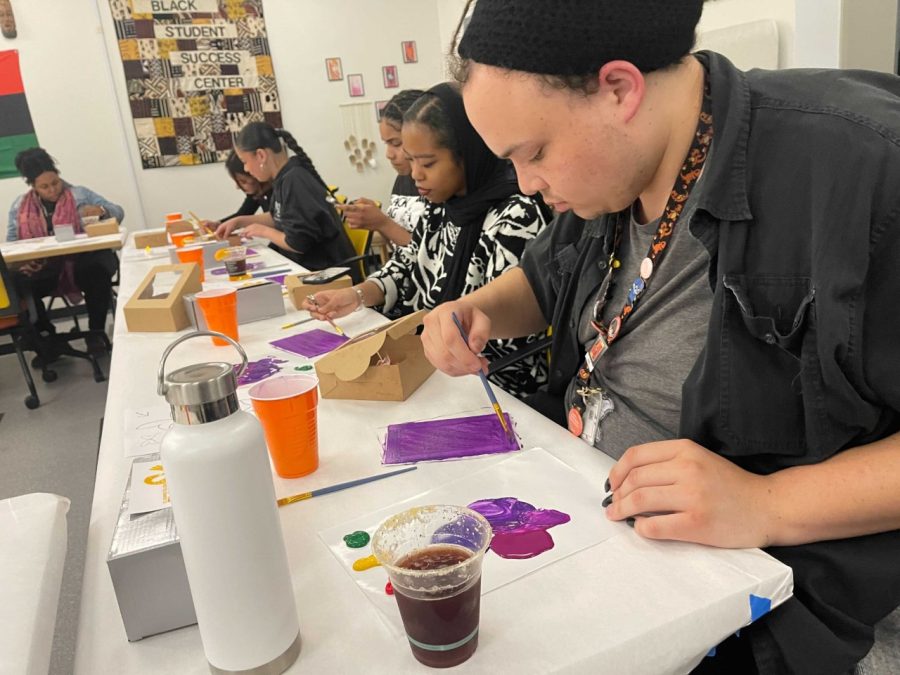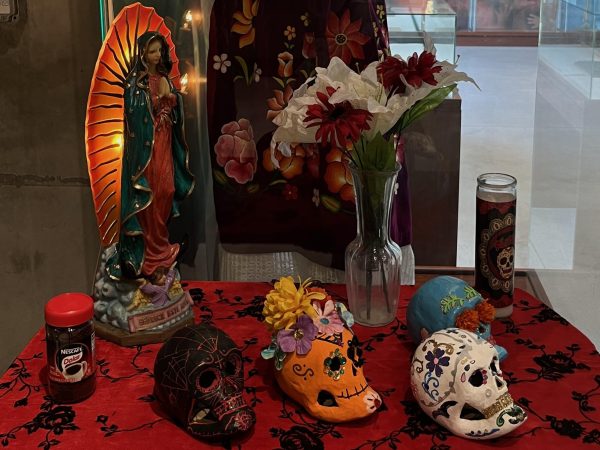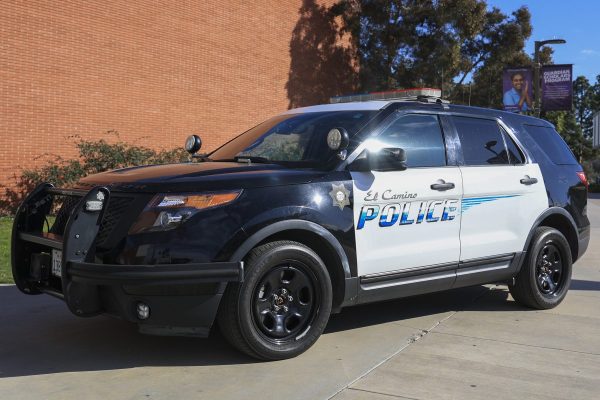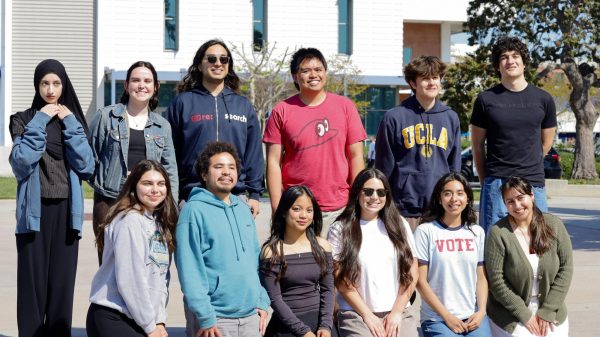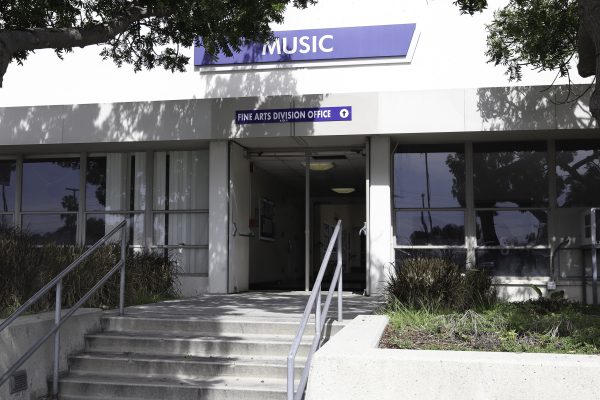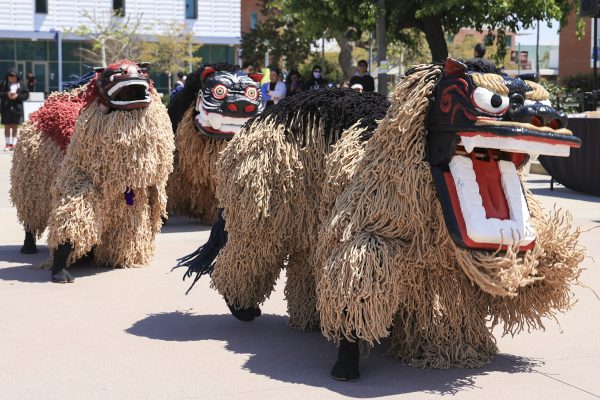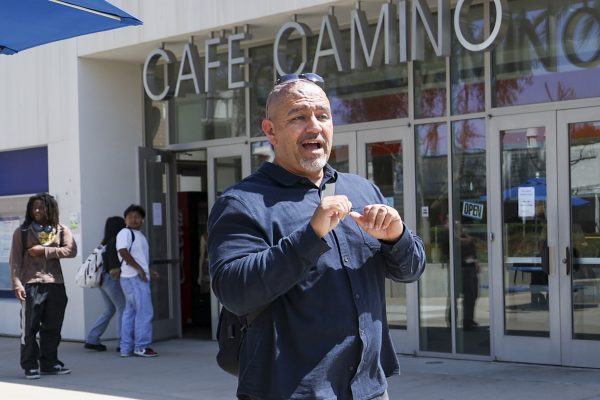El Camino sees growing awareness and resources for LGBTQIA+ community on campus
Anthropology major Quinn Hartman participating in a “paint and sip” workshop at El Camino College’s Black Student Success Center on Wednesday, March 15. Hartman prefers to call anthropology “human diversity” and he regularly advocates for greater resources, recognition and support for communities who he says too often feel unwelcome in higher education. (Kim McGill | The Union)
Students who identify as “unknown” on gender-based surveys increased during the 2020-2021 academic year at El Camino College prompting the need for more awareness of resources available around campus.
As one of the 116 community colleges in California, El Camino College is part of many community colleges that permit applicants to specify whether they are male, female, or transgender when applying as of March 2.
Anthropology major Quinn Hartman experienced positive changes in the LGBTQIA+ community on campus including resources like the Gender Sexuality Alliance Club which hosts regular meetings in a safe environment at the Social Justice Center.
“Before the Social Justice Center opened up, [Gender Sexuality Alliance Club] was actually dormant,” Hartman said. “I went to Club Rush and signed up. They never decided on a room and they never decided on an advisor, so it never really got off the ground.”
According to the college website’s Annual Factbook, enrollment experienced a spike from 54 unknown-gender students in the 2020-2021 academic year to 111 in 2021-2022. Yet, during the same period, there were 11 fewer non-binary students—down from 21 to 10.
The Trevor Project identified in a study LGBTQIA+ youth is among the highest suicide rates compared to their peers with four times the risk of suicide attempts.
More than 1.8 million LGBTQIA+ individuals aged 13 to 24 in the United States consider suicide each year, according to the Trevor Project. At least one suicide attempt occurs every 45 seconds.
Director of Title IX, Diversity and Inclusion Jaynie Ishikawa believes those who identify as transgender are impacted the most by mental health issues. Her office provides help to students who may experience sexual and gender-based misconduct at El Camino.
“For me, the biggest thing to offer students is mental health support,” Ishikawa said. “Because transgender students, for example, face discrimination at much higher levels than nontransgender students, there’s a real negative impact on them in their daily lives.”
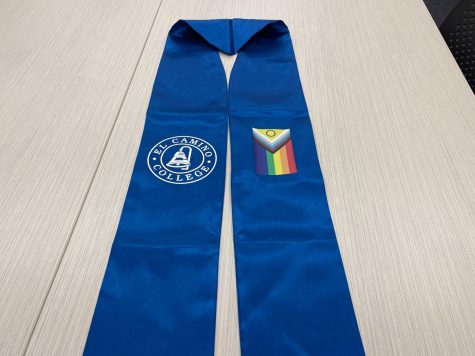
Ishikawa recommends resources such as TimelyCare to assist students struggling with mental health. The Student Health Center also provides six short-term counseling sessions each school year in addition to the application.
In previous years, clubs like Gender Sexuality Alliance were beginning to establish themselves and events like pride week were celebrated. However, this semester, LGBTQIA+ Coordinator Kenny Simkins wants to take things a step further.
This semester’s Pride Week will feature various events, including a pride festival, a visit to the Los Angeles LGBTQ Center, a gay men’s chorus performance, and an LGBTQIA+ prom hosted at the Social Justice Center.
“A lot of the [Gender Sexuality Alliance] students were impacted during the pandemic, meaning they were in high school, so they didn’t get prom or graduation,” Simkins said. “For me, it’s important to make sure this LGBTQIA prom is the highlight of the pride event.”
In addition to the upcoming festivities, there are outside LGBTQIA+ resources for students, including a weekly trans support group at the South Bay LGBT Center and Trans Lifelines.
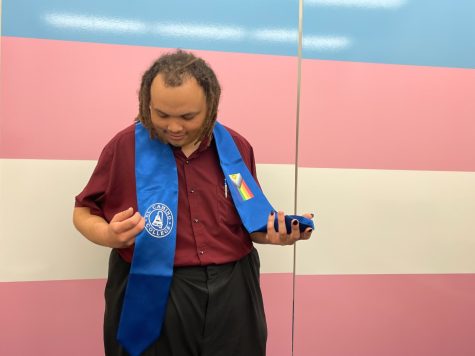
LGBTQIA+ students have been represented more at El Camino over the past five years, going from meeting in classrooms to having a dedicated center for the community that will open later.
For Hartman, until the college stops seeing the future LGBTQIA+ Center as a promotion, there is still work that can be done.
“If you want to make this an actual resource for students,” Hartman said. “You can make it the best it can be and have it be a beacon to the rest of the community colleges in the state.”


